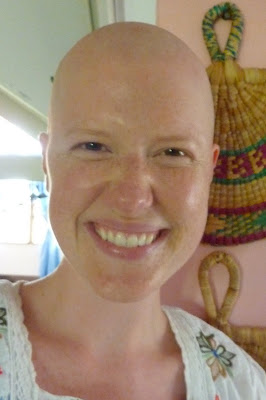Sandiarra: The Beersheba Project
Having contacts in a foreign country is always a blessing; simply knowing you have a connection with people is comforting. When I started spreading the word that I was finally leaving for Senegal, my former director of Ministry and Service at North Central College put me in contact with one of his close friends who had spend a considerable amount of time in Senegal working on his master’s thesis. His friend was more than willing to pass along the name of an eclectic group of people working on an agricultural project in the Mbour region of Senegal: the Beersheba Project (thebeershebaproject.org).
After communicating for about four months with one of the members of Beersheba, I finally met this dynamic group of people. Beersheba is composed of three founding couples (French/Korean, Canadian, and American) whose goal is to train Seer Christians (one of the main ethnic groups in Senegal) to be better farmers and more resolute believers. Their dedication to the long-term was inspirational; real and holistic development only occurs on a long-term basis, which is one of the reasons why the billions of dollars that have been spent on short-term development projects have been a complete waste in terms of engendered results. In addition, they have partnered with a German/Senegalese cooperative effort to supply improved outdoor stoves to families all around Senegal. Between 5,000 and 10,000 women die every year from using outdoors stoves that poorly utilize wood and charcoal, creating an abundance of toxic smoke. I have no doubt that this project is going to make an economic and spiritual difference in the region.
I was “warned” that volunteers do manually intensive work, which I thought was quite humorous considering manual labor was exactly what I wanted to do. Fortunate to arrive during the hay harvest, I learned how to wield a scythe, which is much more challenging than it looks. My arm felt like it was going to fall off after 15 minutes of swinging the tool. Thankfully, there was pruning to be done as well, so I was saved from having to give up prematurely. The combination of sore muscles and the infernal sun was almost too much to handle, even for a determined redhead like me.
Good thing I learn and adapt quickly; by the end of the week, I was much more capable and could maintain the scythe work for two hours straight.
Besides the farm work, I reveled in the peace and quiet and independence of living at the guesthouse. I ran early in the morning when the weather was cool and perfect for relishing in the exquisite African countryside. Mornings here in Senegal are truly the best because the air is fresh and the insects are few, forming a veritable paradise between the hours of 6 am and 9 am. I ate reasonably and healthy, never feeling full to bursting, which has become a familiar and reasonable feeling. I practiced my Wolof with the other workers who lived at the house, and I read and wrote in my journal.
One night we even went camping at Beersheba, setting up tents on the fields of harvested hay. I slept incredibly well in a small tent that maximized airflow while protecting against the embittering insects. At times here in Senegal, I find it difficult to sleep soundly because the rooms lack proper air ventilation or I wake up itching all over from mysterious bug bites or one of my bed mates rolls over on my already sweaty body. Taking a post-lunch nap has become a delightful daily routine. Anyway, camping added to the already memorable escapade. Even though I try to avoid implicating myself with other expatriates as much as possible, every once and a while, the presence of other like-minded foreigners is quite appreciated. I look forward to returning in December.
Tip #3 for Surviving in Senegal: When taking public transportation, do not be deterred by a full bus; there is always room for one more and likely several more. The number of people relying upon public transportation is not proportional to the carrying capacity of those buses and cars in circulation. You will wait three or four times longer for a seat on a bus than if you are willing to slither into the sweaty and smelly crowd going about their daily routine. Flag down the bus, hop on and hope that you have the good fortune of making your rendezvous on time.









Comments